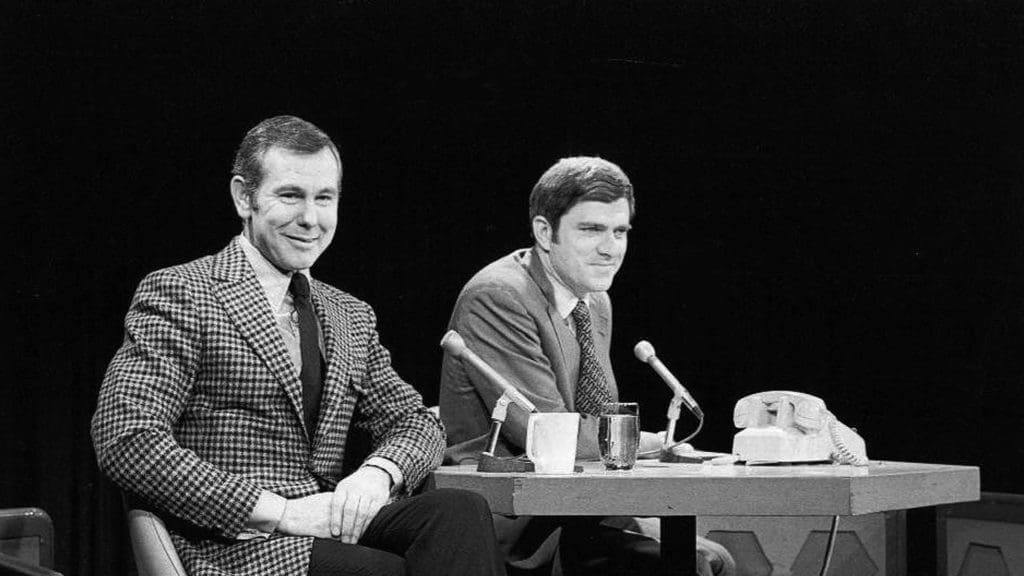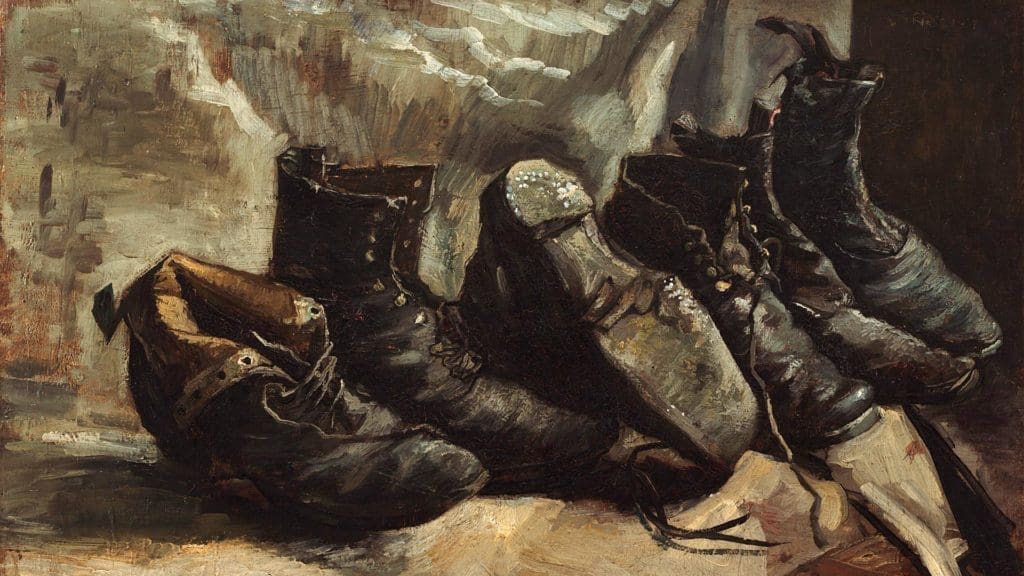I
I’ve never felt comfortable in a heavily armed society. I grew up on Long Island in the wake of September 11. I immediately noticed the soldiers in Penn Station the first time we headed back into the city after the attacks. I’d never seen a long rifle in real life before; I’d barely seen holstered pistols on police officers. But now there were soldiers in body armour holding military rifles across their chests, fingers near the triggers.
The ubiquitous presence of armed soldiers was unsettling. It didn’t matter that the Penn Station soldiers were on “my side.” It meant that the place that was my portal to New York City was now a place on edge. For as long as the soldiers were there, the train station was being treated as a potential war zone. And they never went away.
When people carry guns or any other kind of weapon, there’s the constant, buzzing question of “Will I use this today?” In a community where many other people are armed, there’s always the potential for a conflict to spill over into deadly violence. Defensible self-defence requires the reasonable belief that your life may be in danger, and when you and your antagonist are both visibly armed, the window to defend yourself is brief—both people may feel pressure to draw if they think the other one is moving suspiciously. Neither person may want to shoot, but both can be drawn onward into deadly conflict by the certainty that the other person holds power over them.
So-called empowerment can make us feel less safe. The threat is more obvious when we are both carrying loaded guns, but in culture war conflicts, both sides amass invisible power and grow more and more frightened as they build up their arsenal.
Almost ten years ago, I gathered some of my friends into my living room to try to transform a heated argument that had been taking place on my Facebook feed into a formal debate. The incident that touched off the fight had been the exit of Brendan Eich from Mozilla, a company he co-founded. Eich had made a $1000 donation on the side against gay marriage in the Proposition 8 debate, and when the list of donors was made public, he was forced to resign. We were gathered to debate whether Eich and others like him should be fired—whether they created a hostile work environment by their presence, even if they never discussed their views or donations at the office.
The debate that followed turned out to be much more about safety when I thought it would be more about a public versus private self. From my point of view, I thought the central question was whether it was a bad idea to expect to “bring your whole self to work.” How much space should or could there be between who you were as a co-worker and who you were as a private citizen? Did you cease to be a private citizen once you tried to put your beliefs into action, whether by marching, donating, or even by casting a secret ballot at your polling place? How much of the “problem,” insofar as a problem existed, was the fact of Eich’s beliefs versus them becoming known to the people he worked with?
The same debate that I had anticipated is playing out again as I write, with different combatants. Law firms have been offering bounties for the names of Ivy League activists for Palestine who allegedly celebrated Hamas’s October 7 attacks on Israeli civilians. Several firms have pledged to collaborate on a hiring blacklist. Meanwhile, in California and New York City, students held rallies or riots to demand that a teacher be fired for speaking or marching in support of Israel’s military operations in Gaza.
In each of these clashes there was a certain implied equivalence between any form of political activism and civil disobedience. I saw contempt for students who tried to avoid being filmed, and congressional staffers who appeared masked when they protested their boss’s stances on Israel. The underlying demand was that if you push for change, you have to be willing to risk something. And the more insulated a protestor was, whatever his or her reasons, the more opponents were quick to accuse semi-anonymous activists of trying to get away with something. Free speech (as in consequence-less speech) can appear suspect. But the price of speech may be more than most citizens can bear if it means risking their livelihood.
The line between employee and private citizen has gotten blurrier as companies reach beyond their core function to take stands on social issues. If your boss has previously issued statements on behalf of the company after police shoot an unarmed suspect, his silence after an officer is shot looks like a statement too. Once a workplace or school has gotten into the habit of declaring where the arc of history is bending, it’s hard for students or employees to see their own side neglected. Not only does it feel like a political loss, it can feel like a personal one. Especially if you believed the mission statement promises to support workers’ or students’ “whole self.”
But, back in 2014, in my living room, my friends were arguing from different premises than I had anticipated. Instead of arguing about how much of our selves should be incorporated into our public selves, both sides of our Eich debate were working hard to prove that they were the ones in serious danger, the imperilled victim in need of protection. Who was the real underdog, the group that deserved special consideration and protection? Which side had a legitimate claim to self-defence, and which side was the tyrannical aggressor?
The two expectations of victory and defeat have something in common—they both look forward to a future where persuasion will be unnecessary.
For the gay marriage opponents (and some of their classical liberal allies), the danger was the threat of being pushed out of employment and the public square. They might have lost the battle over gay marriage, but they didn’t think that loss meant that they needed to hide (by omission or active deception) which side they had been on. It wasn’t fair for an employer to compel you not to donate, or march, or vote for a cause you believed in when you were off the clock. And several of the Eich supporters feared that loyalty tests wouldn’t stop at compelled silence.
They were afraid that an employer who felt that they were contributing to a hostile work environment by donating privately to the “wrong” side would also think that not participating publicly in support of the “right” side was similarly hostile. As they anticipated, in the years that followed, some employees ran into trouble when asked to wear a Pride Ally lanyard when talking to customers, and professional baseball players had clashes over whether they had to wear Pride Night baseball jerseys.
But for speakers on the other side, making the threat assessment a matter of employment was all wrong. As one gay man said, he wasn’t arguing to oust Eich for the sake of some abstract feeling of respect, or in order to count coup after a political victory. It was a matter of preparing for the eventual reckoning, when his life would be in danger again. As he put it to our group of friends, he views these kinds of clashes as proxies for a bigger question: “Would you hide me if they came to round us up?”
My friend had grown up after the worst of the AIDS crisis: the suffering of men like him had often been met with worse than indifference. William Buckley Jr. suggested that AIDS testing be mandatory to participate in public life, and that carriers be tattooed on the upper forearm. He withdrew the proposal, complaining that it had “reminded everyone of Auschwitz.” My friend and I had both been old enough to read the news when Rev. John Hagee suggested that God had sent Hurricane Katrina to wipe out gays in New Orleans.
There would come a day, my friend believed, when men like Hagee and those who listened to him wouldn’t be content to leave vengeance to God. As we took turns debating, he felt he was sifting his friends, and those who wouldn’t defend him here, when all he was asking them to do was fire a bigot, would be likely to shut the door against him when he asked for refuge, or worse, they might pick up a machete on the day of reckoning.
It would be several more years before Michael Anton would write “The Flight 93 Election” for The Claremont Review, but the underlying logic seethed beneath our debate. Pluralistic detente wouldn’t hold for long—both sides believed themselves to be in a position of extreme vulnerability, in danger of a permanent defeat, entitled to extreme forms of self-defence.
I’m vulnerable to a little of this temptation myself. Not usually in the form of politics, but when I ride the subway, I sometimes look around and think, “If we got trapped down here, how would I lead an evacuation? Who would need the most help? Who looks like they might panic or refuse to work together? How would I ultimately be the hero here?”
There’s something thrilling about the possibility of a state of exception, where it becomes obvious to everyone in an instant that the normal rules don’t apply. I can fantasize that, with all limits removed, some extraordinary mettle that my ordinary life doesn’t require of me will be revealed at last. It’s what OkCupid was getting at when it asked, as part of its matching algorithm, “In a certain light, wouldn’t nuclear war be exciting?” I made sure to answer no, even though part of me thought yes, because I didn’t want to match with the people who said yes without guilt.
But there are plenty of other places to match with the people who say yes, and hearing that yes—that quiet hope that a crisis is coming and everything will be different after—makes the yes get a little louder and a little less guilty. The particular yes gaining ground is the idea that soon, we might reach a point where violence is allowed, where the rules have all changed, and the principle of self-defence holds sway. Look closely at your opponent, assess every possible sign of strength, every weapon they might bring to bear against you . . . every day we get closer to the magic threshold where you become a hero for punching back, whether or not they’ve actually punched first.
In a late 2023 poll conducted by the Public Religion Research Institute, more than a third of Americans agreed with the statement “Because things have gotten so far off track in this country, we need a leader who is willing to break some rules if that’s what it takes to set things right.” Republicans were more likely to agree (48 percent) than Democrats (29 percent), but neither proportion was small. Smaller but still significant shares of Americans were willing to commit to violence themselves, with almost a quarter of Americans polled agreeing with the statement “Because things have gotten so far off track, true American patriots may have to resort to violence in order to save our country.” Again, many more Republicans (33 percent) endorse this idea than Democrats (13 percent), but both figures have been trending up.
Part of the reason that violence is so attractive is because both sides are sure they’re losing. In the same poll, majorities of Democrats (59 percent) and Republicans (90 percent) both said the country was going in the wrong direction. It’s pretty normal for the party out of power to feel that way, so it’s the despair of the Democrats that’s particularly notable. And it was less than twenty years ago that there were books on the emerging, permanent Democratic majority!
But I think the two expectations of victory and defeat have something in common—they both look forward to a future where persuasion will be unnecessary. Either your enemies will be so marginalized that there’s no reason you have to cater to their foolishness (any more than we worry about rapprochement with Flat Earthers), or they’ll be so dominant that reasoned discourse will be unequal to a situation that demands active, violent self-defence. In both cases, there’s the small relief that you no longer have to talk to those people.
A Christian point of view requires us to give up the desire to finally, finally be free of our obligations to our neighbour.
A Christian point of view requires us to give up the desire to finally, finally be free of our obligations to our neighbour. The majority of us (at least so far) might be reluctant to pick up the rock ourselves as Cain did, but many of us would still react with relief when our neighbour is reduced rather than redeemed, and we can say we do not know where they are, nor do we care. The only way to be permanently severed from the people we hate or fear is for them or us to go to hell, and we are not permitted to pray for their destruction (or our own).
In practice, we don’t encounter the people we are learning to hate or fear as brothers, but as strangers. The internet makes it easy to come into contact with the worst of what our opponents have to offer. When someone on Twitter is mad about an article I wrote and tells me that they’re happy some of my children died in the womb and they hope I lose more, I can remind myself that they’re not representative of their whole side. But it’s hard to imagine what I can do to seek reconciliation with this person. I have no prior relationship to restore, but it doesn’t seem like a satisfactory restoration to return to being strangers to each other. Healing the wrong would require creating a connection where none had existed.
The premise of liberal pluralism is that we will live alongside neighbours who are living in grave moral error, and who are working to invite others into their way of seeing the world.
If it feels like there are enemies everywhere, part of that paranoia is rooted in the reality that any stranger can suddenly expose or upbraid us. In East Germany, one in twenty doctors were informants to the secret police. In America, how many people do you encounter who seem like they might serve in a similar capacity, ready to pull out a phone and make a private moment public if they think you might be an embarrassment to your side?
To de-escalate and disarm, we have to pick our battles. The more time we spend exposed to the maelstrom of social media or participating in pile-ons, the less chance that any passing victory could stick or provide a feeling of more than fleeting safety. It doesn’t work to navigate by our opponents’ sense of embattlement or our own.
Our conflicts can be worse than zero-sum—one side feeling frightened does not imply that the other side must feel safer. Often, as in my Eich debate, both sides do have something to fear from the other, even if one is in a place of momentary, relative strength. And as you acquire more and more power over your enemy, your fear can spike, because as your opponent’s position is more desperate, he may turn to more violent methods of resisting you.
In his guide to war, Sun Tzu cautioned against totalizing victory: “When you surround the enemy, always allow them an escape route. They must see that there is an alternative to death.” An enemy facing certain, total defeat has reason to focus on inflicting as much harm as possible on you, so their resistance leaves a scar. Winning a victory that can stick means convincing your enemy that there is a tolerable way to lose.
In the short term and at a distance, that means credibly promising that you want to leave your opponent some room to live peaceably in error. The premise of liberal pluralism is that we will live alongside neighbours who are living in grave moral error, and who are working to invite others into their way of seeing the world.
But in the long term, and where there’s a relationship to sustain the work, it makes sense to offer a different kind of retreat. Not the careful separation of a demilitarized zone—I won’t ask for you to be fired for being wrong if you don’t ask for me to be fired—but the open door of an invitation to conversion. We are striving not to mutually tolerate each other’s errors but to create strong relationships of trust that allow us to adversarially collaborate in pursuit of truth.
The best, most lasting victory is the one described by St. Cecilius of Carthage, a third-century pagan who was converted to Christianity by his friend Octavius’s arguments. When conceding, Cecilius declared, “I congratulate both my Octavius and myself exceedingly: we are both conquerors. Octavius triumphs over me, and I triumph over error. But the chief victory and gain are mine, who, by being conquered, find the crown of truth.”
De-escalating violence requires us to acknowledge that the stakes of being wrong about character, marriage, country are serious. We can work with our opponents to lower the stakes of our arguing, but we can’t lower the real stakes of the questions.
The best place to practice striving for that kind of victory is unlikely to be online. But most of us are lucky enough to have a local testing ground for pluralistic compromise and loving neighbours as brothers. Public schools have been a culture war flashpoint for their whole history, since they ask parents to trust their children’s formation in character to a curriculum chosen by their community at large.
Some schools sidestepped conflict by relying on de facto or de jure segregation to create relatively homogeneous student bodies. But even where they succeeded for a time (my childhood public school’s linear boundaries took a sudden swerve to avoid a non-white neighbourhood), the changing demographics over time can restore diversity to a school that sought to erase it.
When a school serves an ideologically diverse population of families, it invites conflict. A culture that can’t ultimately settle ideological disagreements can’t run a school worthy of the name. A school can’t be run by delicate détente, suspending judgment on every issue that prompts division. But it also can’t be run by picking winners and losers, where the outvoted losers feel like what they’ve risked and lost is their children.
De-escalating violence requires us to acknowledge that the stakes of being wrong about character, marriage, country are serious. We can work with our opponents to lower the stakes of our arguing, but we can’t lower the real stakes of the questions. The goal of de-escalating is to make conflict safe enough to attempt, not to sidestep it. It takes trust to move from a war against an enemy to a search for truth with a difficult brother.





